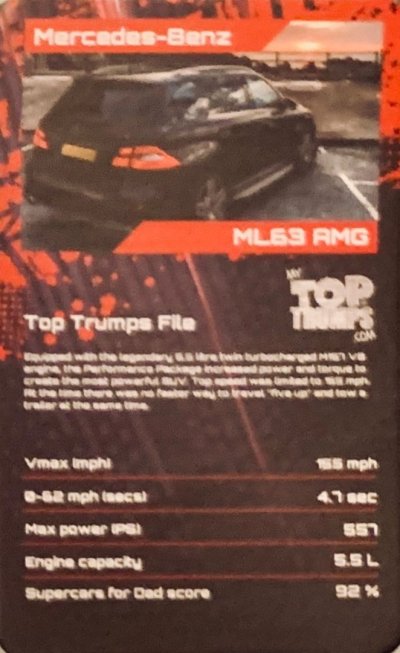ChipChop
MB Enthusiast
Market demand and govt incentives.Why did Nissan set up shop there?
Follow along with the video below to see how to install our site as a web app on your home screen.
Note: This feature may not be available in some browsers.
Market demand and govt incentives.Why did Nissan set up shop there?
In response to falling demand i would imagine. See Tesla's repeated price cuts over the last 2 years.
Savvy buyers like yourself get the good deal. Always been the way with car dealers no?Tesla were actually up front about it. Nissan were sneaky buggers, they never actually reduced the price to the retail customer. When I went to the Nissan Dealer they had 3 Leafs in the swanky showroom at the full retail price of 32k with the printouts showing the PCP rates and laughable balloon payment. I had to ask about the supposedly "Ex Demo" cars with zero miles for 16.5k. They were hidden round the back with no prices on.
So I know Nissan are a business but what they did just smacks of bad form to me.
Government incentives were certainly a factor in why Sunderland and why the UK. Wasn’t the primary driver to build factories in Europe to mitigate the impact of import tariffs on cars manufactured in Japan, to protect the European car manufacturing industry?Market demand and govt incentives.
Umm, "Bad form" in exactly the same way that Ford, Vauxhall, Renault, and SAAB operated over the last 30-40 years?Tesla were actually up front about it. Nissan were sneaky buggers, they never actually reduced the price to the retail customer. When I went to the Nissan Dealer they had 3 Leafs in the swanky showroom at the full retail price of 32k with the printouts showing the PCP rates and laughable balloon payment. I had to ask about the supposedly "Ex Demo" cars with zero miles for 16.5k. They were hidden round the back with no prices on.
So I know Nissan are a business but what they did just smacks of bad form to me.

Umm, "Bad form" in exactly the same way that Ford, Vauxhall, Renault, and SAAB operated over the last 30-40 years?
The obvious advantage that both BEV and Fuel Cells have over ICE, is that the cars do not produce harmful emissions, which is important for cars driven in urban settings (which is most of them).
But other than that.... which one is better?
This one is a bit closer to your cup of tea @Will more relevant to this wonderful forum and a much better Top Trumps card to boot.I hope I don’t get dealt this one. I love driving it in real life. It it’s rubbish in a game of Top Trumps!
View attachment 166175

85mph+ all day long towing the caravan in that bad boy in winter and the passengers don’t even need to get out for a coffee on a four hour run such is the immense refuelling speedThis one is a bit closer to your cup of tea @Will more relevant to this wonderful forum and a much better Top Trumps card to boot.
View attachment 166178
When we have compared EV vs ICE we have included maintenance costs as an advantage for the EV due to simplicity. What are the maintenance costs for hydrogen powered car vs an EV?
Fundamentally a fuel cell vehicle is an EV with the added complexity of a fuel cell as I imagine they must have a battery to buffer the output of the fuel cell. Hydrogen is stored at very high pressure in a pressure vessel which will be subject to specialist scrutiny and may need to be replaced at intervals. I don't know about the fuel cell but I would think they are also subject to specialist inspection. Gut feel suggests that the added complexity and specialist nature of the fuel cell vehicle must make it more expensive to maintain than an EV.
Edit:
I remembered something about Hydrogen buses so here's one answer to your question.
Hydrogen buses cost 41% more over their lifetime than battery-electric
85mph+ all day long towing the caravan in that bad boy in winter and the passengers don’t even need to get out for a coffee on a four hour run such is the immense refuelling speed
THE freezing weather last week disrupted Glasgow's electric buses, causing their batteries to drain faster than usual, and leaving people stranded during their commute.
Some of First Bus’s double-deckers were halted mid-journey due to the freezing temperatures.
A spokesperson for First Bus said that the company is "aware of challenges" concerning the range of its electric vehicles (EVs) in extremely cold temperatures.

 www.thenational.scot
www.thenational.scot
Pretty sure they require recertification every three years. How they are tested for that I don't know but having been involved in NDT none of it is easy or cheap.The tanks are certified for the life of the vehicle (they are typically carbon, which doesn't corrode of course)
We use essential cookies to make this site work, and optional cookies to enhance your experience.
